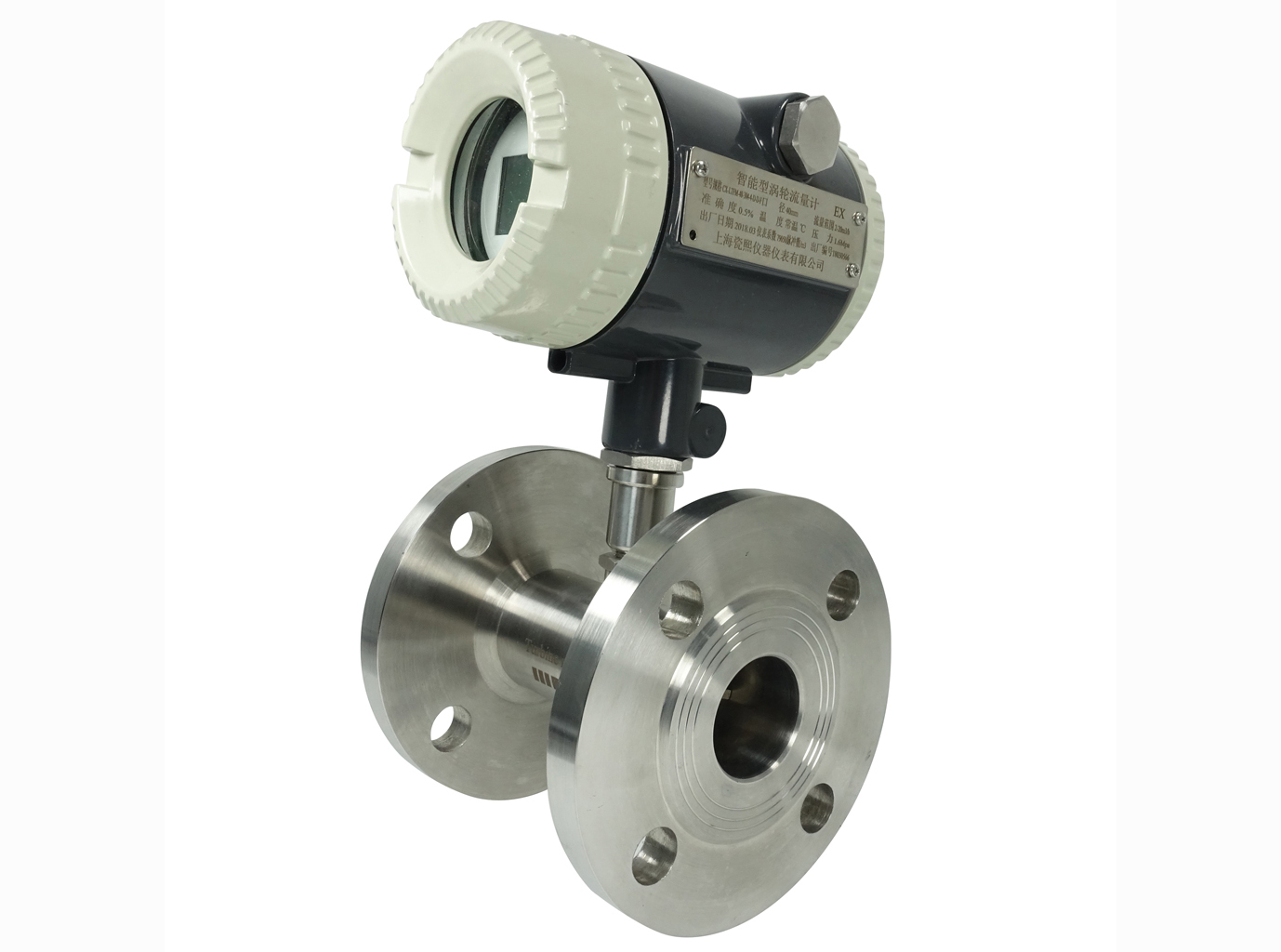Turbine flow meter working principle
Email:sales01@cxflowmeter.com
whatsapp:008618049841995
Turbine flow meter working principle
The working principle of
turbine flow meter is mainly based on the principle of fluid dynamics. The flow rate is determined by measuring the frequency generated by the fluid
passing through the rotating turbine. The following is a detailed explanation of the working principle of turbine flow meter:
I. Basic principle
Turbine flow meter is a velocity flow meter that calculates the flow rate by measuring the rotation speed of the turbine when the fluid passes through the turbine. The working
principle of turbine flow meter is based on the relationship between the driving torque of the fluid on the turbine blades and the rotational angular velocity of the turbine. When
the fluid passes through the turbine flow meter, the fluid will impact the turbine blades and start the turbine to rotate. The rotation speed of the turbine is proportional to the
flow rate of the fluid, so the flow rate of the fluid can be calculated by measuring the rotation speed of the turbine.

II. Working process
Fluid drives the turbine to rotate:
The fluid flows in from the inlet of the turbine flow meter and impacts the turbine blades.
The flow rate of the fluid causes the turbine blades to start rotating, and the rotation speed of the turbine is proportional to the flow rate of the fluid.
Sensor detects the rotation frequency:
The turbine flow meter has a built-in sensor (such as an electromagnetic induction sensor) to detect the rotation frequency of the turbine.
When the turbine blades rotate, they periodically cut the magnetic lines of force generated by the electromagnet and change the magnetic flux of the coil. According to the
principle of electromagnetic induction, a pulsating potential signal, that is, an electric pulse signal, will be induced in the coil.
The frequency of the electric pulse signal is proportional to the rotation speed of the turbine, and therefore also proportional to the flow rate of the fluid.
Signal processing and display:
The electric pulse signal detected by the sensor is amplified and shaped by the preamplifier and sent to the display instrument or control system.
The display instrument or control system processes the signal, converts the rotation frequency into a flow value, and displays it on the display.
At the same time, the flow signal can also be output as a pulse signal or current signal (such as 4-20mA) for communication or control with other devices.
III. Technical features
High measurement accuracy: The turbine flowmeter has high accuracy and its measurement error is usually small.
Good repeatability and stability: When the turbine flowmeter measures the same flow multiple times, the results have good repeatability and good stability for long-term use.
Wide range: The turbine flowmeter has a range ratio of up to 10:1, which can measure flow rates in different ranges.
Quick response: The turbine flowmeter responds quickly to flow changes and can reflect flow changes in real time.
Strong anti-interference ability: The output signal of the turbine flowmeter is a frequency modulated signal with strong anti-interference and easy signal transmission.
IV. Application field
Due to the above advantages, the
turbine flowmeter has been widely used in the fields of petroleum, chemical industry, electricity, gas pipeline network, urban gas, etc.
In addition, it has also been widely used in some special departments such as scientific research experiments, national defense science and technology, and measurement
departments.
If you want to know the specific selection and quotation of the turbine flowmeter, please consult CIXIFM winny:
Email:sales01@cxflowmeter.com
whatsapp:008618049841995

